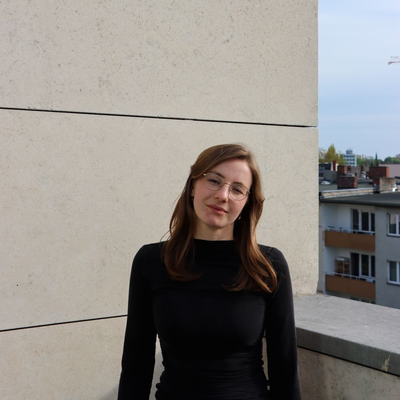Profile of Miriam Siglreitmaier
Our society is built on the idea that everyone has equal access to education and people can pursue their desired careers regardless of their backgrounds. But to what degree is social mobility actually possible? How does it manifest across generations? And what costs does it come at for those involved?
These are the questions Miriam Siglreitmaier is looking at in her doctoral research. Siglreitmaier is a PhD candidate in the RTG Dynamics research group at Humboldt-Universität zu Berlin and the Hertie School, where she researches demographic change and intergenerational social mobility.
After focussing on philosophy in her BA at HU Berlin, Siglreitmaier realized that she was craving more of a connection to the real world in her academic work. After years of working theoretically on questions surrounding justice and equality, she felt the desire to ground her work in more empirical questions. "I don’t only want to talk about how things should be but also provide ideas and solutions for how things can be changed," she told me. This led her to an MA in social sciences, also at HU Berlin, and eventually to her current position in the Dynamics research group.
Her doctoral research looks at social mobility, with a special interest in how it can unfold across multiple generations and what the costs are for those changing classes. In the first study in her dissertation, she looks at social class in families across three generations and how people move across classes over generations. While most research on social mobility only takes parents and children into consideration, Siglreitmaier wanted to widen the picture to include grandparents. This has allowed her to introduce more nuance to her mapping of mobility trajectories and notice patterns related to how quickly social mobility is achieved.
In the second study, she turns her attention to how the process of upward social mobility can affect the individuals experiencing it. "When we as societies talk about how children from poor backgrounds should have equal opportunities, what people often forget is what the costs can be. It’s not like upward mobility is super easy and happens just like that," she explained. Her preliminary findings show that university graduates with lower social origins have more trouble finding appropriate employment after university than their higher class counterparts, which in turn leads to lower levels of health.
In the final study of her dissertation, she will continue to investigate the costs of mobility, this time as they relate to family and partnering behavior. The idea is that upwardly mobile individuals might achieve success in their education and careers at the cost of their family life, in ways that people from more wealthy backgrounds don’t experience.
Siglreitmaier has long been drawn to the topic of equal opportunities. That interest was reinforced during an internship at the German Ethics Counsel, where she heard firsthand accounts of people’s experiences in foster care. She was struck by the precariousness of the conditions described and set out to increase knowledge and awareness about children growing up in poverty.
"I want to challenge the idea of whether equality of opportunity is possible. And even if it is possible, what are its effects on people?" she asked. Siglreitmaier believes that if the public knew how upward mobility really works, they wouldn’t think our current system is just. For example, if people were aware that it takes generations for a family to get ahead and that it comes at a personal cost to those involved, they likely wouldn’t be as accepting of the inequalities that result from capitalism. Shedding light on this is a large part of the impact that she hopes to have with her PhD.
Going into the future, Siglreitmaier hopes to continue doing empirical and policy-relevant work in the field of social inequality. Whether she does this inside or outside of academia isn’t as material to her, as long as she is contributing to changes in our societal structure and challenging the existence of poverty as a whole. "People should not have to fight to get what they deserve."
written by Nad Porter-Kasbati

